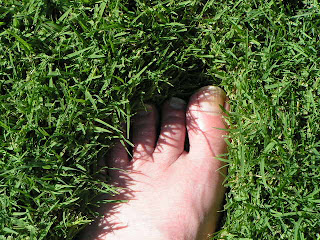
What exactly is Bermuda Grass?
Bermuda grass is found throughout the southern states in the USA. This is generally found in warmer climates and can be found in pastures and open woodlands. The ‘Cynodon dactylon’ or the Bermuda grass is known as Bermuda in the United States simply because it was introduced from the Bermuda island.
The Bermuda grass not only recovers quickly from fires, it can even grow at a fast pace in poor soil. This kind of grass can even re-grow even if it is cut. This is because it has long roots, which are often difficult to destroy. The common Bermuda grass is therefore drought resistant and can also make a good turf if it is tended to, with care. These can be easily planted with the help of the Bermuda grass seed; and with great care it can prove to be a very high quality lawn grass.
The Bermuda grass is used for lawns, tennis courts, golf courses and other such landscaping areas. The golf courses generally make use of the Bermuda grass very extensively. This Bermuda grass is low on maintenance and can face the strength of the full sunlight. The Bermuda grass seed heads are quite similar to the seed heads of the crab grass. Therefore, these are frequently confused with each other. This kind of grass is also known to form a thick or dense mat on the ground. Therefore, the Bermuda grass is also known as a creeping grass because whenever the node touches the ground, it tends to reproduce from the roots that are under the ground. The Bermuda grass seed heads are generally around 1-3 inches in size and start growing within two weeks.
There are two varieties of Bermuda grass:
The Common Bermuda
The Hybrid Bermuda
The common Bermuda has a medium texture, whereas the hybrid variety has a fine texture.
Uses of Bermuda Grass:
- Apart from the home lawns and the golf courses, the Bermuda grass is considered to be very sacred amongst the Hindus in India. The juice when squeezed from the stems can be used as an astringent for medical purposes.
- Bermuda grass is also used in homeopathy where the juice is used with other medicines. It is also known to increase the strength of the body by making it resistant to common allergies.
- The Bermuda grass is also useful in the farming and animal husbandry section.
- It also proves to be an excellent grass for cattle and it can prevent land soil erosion which may be caused due to an excess amount of water during the rains.
- One has to keep a track of the schedule for fertilizing the Bermuda grass. Follow a timetable that would require you to add fertilizers every 45 days.
- Ensure that you water it deeply. Watering this grass deeply would ensure that it has deep roots and this would in turn make your grass look good especially during the summer season. This would also largely depend on the consistency of the soil.
- Ensure that you mow it regularly.
- In order to prevent winter weeds, you can check the market to stock certain pesticides that can prevent weeds from growing in the lawns. Ask the local store about the certain months you may need to stick to this practice, to apply these pesticides to keep your lawn looking at its best at all times.
No comments:
Post a Comment